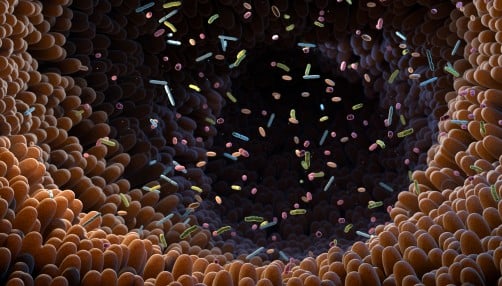URGENT UPDATE: A groundbreaking study from UCLA Health reveals that a child’s early gut microbiome may significantly impact their risk of developing emotional disorders such as depression and anxiety during middle childhood. Published today in the journal Nature Communications, this urgent research highlights how gut bacteria influence brain connectivity associated with emotional health.
The study indicates that children with a higher presence of bacteria from the Clostridiales order and Lachnospiraceae family at just 2 years old show increased susceptibility to internalizing symptoms, which encompass depression and anxiety, by the time they reach 7.5 years old. The link appears to be indirect, as the composition of gut microbes affects brain connectivity related to emotions, potentially programming children’s mental health trajectories as they grow.
Dr. Bridget Callaghan, senior author of the study, emphasizes the importance of these findings: “By linking early-life microbiome patterns with brain connectivity and later symptoms of anxiety and depression, our study provides early evidence that gut microbes could help shape mental health during the critical school-age years.” This insight raises alarm bells about the lasting impact of gut health on emotional well-being.
The research utilized data from the Growing Up in Singapore Towards Healthy Outcomes (GUSTO) study, which tracked health data from children in Singapore. Researchers analyzed stool samples from 55 participants at age 2, conducted resting state MRI brain scans at age 6, and gathered caregiver surveys regarding behavioral problems at age 7.5.
This study is unprecedented in its focus on school-aged children, contrasting with previous research that primarily examined infants and toddlers. Callaghan and her team aimed to determine if gut microbiome composition could lead to adverse mental health outcomes when issues like anxiety and depression typically emerge.
The findings are particularly critical as untreated symptoms of depression and anxiety can lead to more severe mental health challenges as children transition into adolescence and adulthood. The connection between gut bacteria and emotional health aligns with prior studies on adults, suggesting that specific microbiome populations may be more sensitive to stressors, further influencing mental health.
“We need to figure out what species within these larger groups are driving the findings,” Callaghan stated. “There are relatively straightforward ways to change the microbiome, like probiotics or diet, that we could use to address issues.” This emphasizes the potential for practical interventions that could improve mental health outcomes based on early microbiome analysis.
As researchers push for further experimental studies to confirm causality, the implications of this research could reshape how we address mental health in children. The collaborative effort includes contributions from the Agency for Science, Technology and Research’s (A*STAR) Institute for Human Development and Potential, KK Women’s and Children’s Hospital, and the National University of Singapore Yong Loo Lin School of Medicine.
Stay tuned as this developing story unfolds, and consider the potential of gut health in shaping emotional well-being for future generations. For further details, contact [email protected] for embargoed study access.







